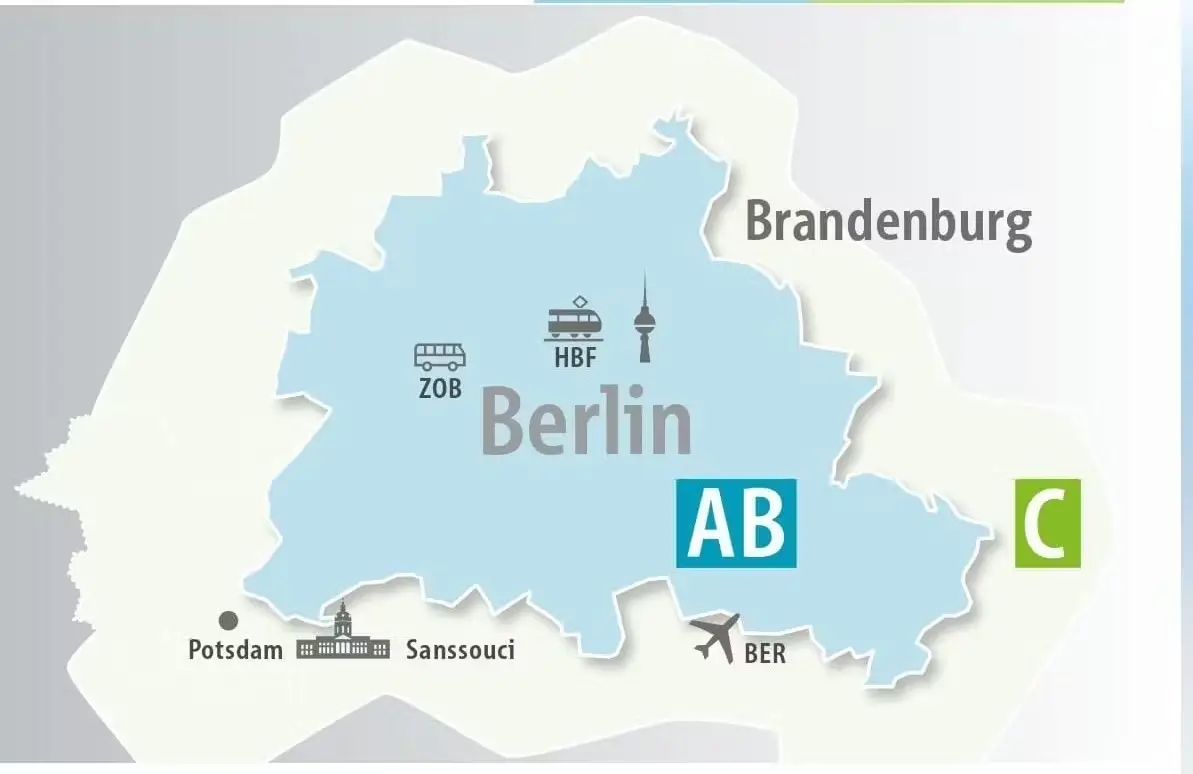In big cities, public transportation is a real miracle, and if those cities also have an underground transportation network, it's even better for the tourist who wants to get to different parts of the city quickly and cheaply.
You already know that we use public transportation a lot and that we always dedicate a special column to this aspect, but what you don't know is that Berlin gave us the most headaches.
On our first visit, I was completely lost in front of the map, and quite a few times we got on the wrong trains, as we often had headaches when we had connections at different stations.
On the second trip I can't say it was any clearer, but we were accompanied by two local friends and it was a little easier. So, I did my homework, wrote down everything that needed to be written down, to give you all the information you need if you plan to use public transportation in Berlin.
Read also: My Festive Season by Germany's Enchanting Waterfront
Berlin – All About Public Transport
Although we stayed in the city centre, most of the time we had to change two metro lines to get to our destination. In addition, we had to be very careful about which direction we were going and whether we needed the U-Bahn or S-Bahn – two terms that were unfamiliar to us.
Example
We wanted to get to Brandenburger Tor, and from the station we were at we had to take the green line (it's easier for me to remember them by color than by numbers or name) and we couldn't find it. We kept going back and forth through the subway station until we realized that we needed the S-Bahn and not the U-Bahn.
Glossary of terms
S-BAHN – Stadtbahn – It is a type of urban-suburban railway
U-BAHN – underground
Subway stations and important routes – To make it easier for you, we have made a list of all subway stations and s-bahn and u-bahn lines for the most important tourist attractions:
- S1 – for Potsdamer Platz and Brandenburger Tor
- U2 – Potsdamer Platz and Hausvogteplatz station – for Gerdamenmarkt
- U6 – Kochstrasse station – for Checkpoint Charlie
- U5 – Rotes Rauthaus station – for Berliner Dom, DDR Museum, Alexander Platz and Museum Island (Museumsinsel)
- S3, S5, S7, S9, (S75) – Warschauerstrasse station – for East Side Gallery – Berlin Wall and Zoo (Tiergarten station)
- U7 – Richard Wegner Platz station – for Charlottenburg Palace
- S9, S45 – Brandenburg Airport – Flughafen Brandenburg Berlin
Zones, prices and passes
On the public transport map you will find that Berlin is divided into three zones – A, B and C. Zones A and B correspond to the central area of the city, while zone C includes the city of Potsdam and Brandenburg Airport.
The cost of a trip is calculated according to the zone in which the trip takes place, so we find the following prices:
- 3.80 euros/trip for zones AB
- 4.30 euros/trip for zones BC
- 4.70 euros/trip for zones ABC
If you think you will use public transport more often, then a one-day or seven-day pass would be the best option.
- Tageskarte (a card valid for one day) costs 10.60 euros (zones A and B), respectively 12.30 euros (zones A, B and C) – It is good to know that these cards are not for 24 hours, but are valid from the first use until 3:00.
- 7-day pass – 44.60 euros (zones A and B) and 52.70 euros (zones A, B and C).
Prices and routes are in accordance with those on fahrinfo.bvg.de. For more info access this link.

In 2020, Tegel and Schonefeld airports were closed and replaced by the new airport, Berlin Brandenburg Airport. The new airport (BER) is located 18 km from the city center, in the state of Brandenburg.
How to get from the new airport – Berlin Brandenburg Airport – to the city center (Alexander Platz): S-Bahn – Line S9 – departure from terminals 1,2,5, to Alexander Platz. One trip costs 3.60 euros.
Traveler's tip – If you purchase a WelcomeCard Berlin, you get free transportation for the entire validity period of the card. The card offers a bunch of benefits that we will discuss in the coming days.
That being said, I hope my article will be useful to you when you arrive in Berlin. I invite you to read more about what I did during my three days in the German capital.
Read also: Berlin – All About Public Transport

